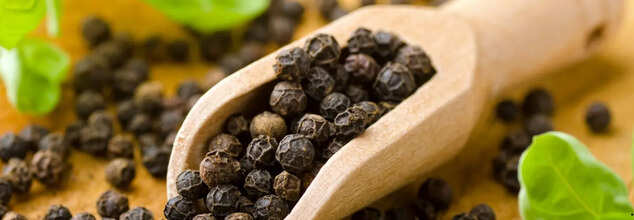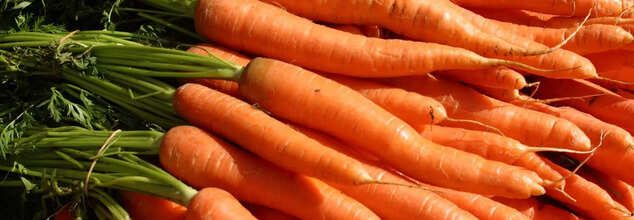
Credit: Canva
Do You Need Copper Water Or Does It Causes Toxicity?
Copper-infused water has gained popularity in recent years, with many believing it offers unique health benefits. However, is it really necessary for daily consumption? Experts suggest that while copper is an essential mineral, most people obtain enough of it through their regular diet, making additional intake from copper water largely unnecessary.
Tata Copper Water, for instance, contains 0.06 mg of copper per 100 mL, equating to 0.6 mg (600 mcg) per liter. The recommended daily intake of copper for adults is 900 mcg (0.9 mg), which can be easily met through a well-balanced diet rich in natural sources of copper.
Common dietary sources of copper include shellfish, seeds and nuts, organ meats, wheat-bran cereals, whole grains, and chocolate. With such an abundance of copper in everyday foods, deficiencies are rare among individuals maintaining a nutritious diet.
One concern often raised is whether drinking copper-infused water could lead to excessive copper intake or toxicity. However, research indicates that the copper content in such water is too minimal to pose a risk. The maximum tolerable limit for adults is 10,000 mcg (10 mg) per day, meaning one would have to consume approximately 17 liters of Tata Copper+ water to exceed this threshold—an impractical and unrealistic amount.
While copper water is not harmful, it is also unlikely to provide significant health advantages for most individuals. Since dietary sources already supply sufficient copper, additional intake from infused water may not have any measurable impact on health.
Copper is an important trace mineral, contributing to various bodily functions. It plays a role in energy production, connective tissue and blood vessel formation, nervous and immune system maintenance, and gene activation. Additionally, copper is vital for proper brain development and overall well-being.
For those interested in incorporating copper into their lifestyle, an alternative practice is storing water in copper, steel, or glass bottles rather than plastic or PET bottles. This choice is often recommended as a better health practice, promoting cleaner and safer water storage.
Ultimately, while drinking copper-infused water is not harmful, it may not be necessary for those already consuming a copper-rich diet. Instead, maintaining a well-balanced, nutrient-dense diet remains the best way to ensure adequate copper intake and overall health.

Credit: Canva
How To Use Black Pepper For Weight Loss
Spices are the heart of Indian cuisine, adding depth and distinct flavors to dishes. Besides that, they are also hold strong medicinal value. One such widely used spice is black pepper, also known as Kali mirch. Its bold aroma and sharp taste can instantly elevate any dish, making it an essential ingredient in Indian cooking. But beyond enhancing flavor, this common kitchen staple is also a natural fat burner.
How Does Balck Pepper Aid Weight Loss?
Black pepper contains piperine, a bioactive compound known for boosting metabolism and preventing fat accumulation in the body. Additionally, it enhances the concentration of good cholesterol, contributing to better heart health.This spice is classified as a thermogenic food, meaning it helps accelerate metabolic processes, allowing the body to burn calories more efficiently. Furthermore, studies suggest that consuming spicy foods can increase satiety, making you feel full even after consuming smaller portions—an important factor in weight management.
Ways To Use Black Pepper For Weight Loss
Several studies highlight the benefits of incorporating black pepper into the daily diet for effective weight loss. While this spice is generally safe for consumption, moderation is key. Experts recommend limiting intake to 1-2 teaspoons per day, as excessive consumption may lead to digestive issues.Here are some easy and effective ways to include black pepper in your diet:
1. Black Pepper Tea
For those who love tea, adding black pepper can transform it into a **weight-loss-friendly beverage**.
How to prepare
- Boil one cup of water in a pan.
- Add one inch of crushed ginger and let it simmer for five minutes.
- Strain into a cup and steep a green tea bag in it.
- Add half a teaspoon of black pepper, stir well, and drink.
2. Chewing Raw Black Pepper
If you can tolerate its strong taste, chewing 2-3 black peppercorns on an empty stomach every morning can be beneficial.
3. Black Pepper and Honey Drink
A simple detox drink, this combination can support digestion and metabolism.
How to prepare
- Boil one cup of water and let it cool slightly.
- Stir in one teaspoon of honey and half a teaspoon of freshly ground black pepper.
- Drink it warm for best results.
4. Black Pepper Oil
Black pepper oil, when consumed in small amounts, may aid in weight loss.
How to use:
- Purchase 100% pure black pepper oil from a reliable pharmacy.
- Add one drop to a glass of water, mix well, and drink before breakfast.
5. Black Pepper in Juices
Enhance the nutritional value of fruit and vegetable juices by adding black pepper. Simply mix half a teaspoon into your juice before consumption.
Best Time to Consume Black Pepper
For maximum benefits, black pepper should be consumed **on an empty stomach**, preferably before breakfast. This helps stimulate digestion and optimize metabolic activity throughout the day.
Are There Any Side Effects Of Using Black Pepper?
While black pepper is a powerhouse of health benefits, excessive intake can lead to:
- Gastric issues and stomach upset
- Irritation of the intestinal lining
- Increased risk of miscarriage in pregnant women (should be avoided during pregnancy)

Image Credit: Canva
Most People Overlook These 4 Essential Times to Drink Water Every Day
Did you know the timing of when you drink water is as important as the amount of water consumed? While many individuals are busy making sure they reach their daily quota, not many are aware that consuming water at certain times will get the best out of it. Whether boosting your metabolism first thing in the morning or aiding digestion prior to meals, water helps to keep your body in top condition. Curious when you need to be drinking this life-sustaining potion?
Hydration is basic to overall well-being, but many pay more attention to the amount of water they consume than to when they consume it. All cells, tissues, and organs in the body need water to work correctly. Hydration affects digestion, cardiovascular health, brain function, and even spinal health. Yet, drinking water in the most effective way possible is as essential as drinking enough of it. Rather than swallowing several glasses at one time, distributing water consumption strategically throughout the day can yield the greatest rewards.
Based on National Academies of Sciences, Engineering, and Medicine hydration recommendations, men need a minimum of 13 (8 oz) cups of fluid every day, while women need at least 9 (8 oz) cups or more. Yet these amounts vary depending on the level of activity, climate, and personal health status. To tap into the full potential of hydration, let's discuss four critical times to consume water that most people unknowingly neglect.
1. After Waking Up
Your body dehydrates while you are asleep, making you slightly dehydrated in the morning. Drinking water when you wake up in the morning rehydrates your body, cleanses you of toxins, and gets your metabolism going. It also gets internal organs to work, activating them for the day. Hydration in the morning has been proven to increase brain function, which enhances memory and concentration. Rather than for coffee, use your hand to stretch for lukewarm lemon water to awaken digestion and trigger detoxification.
2. Pre-meal
Having a glass of water approximately 30 minutes prior to eating can help digestion by conditioning the stomach to digest food better. Adequate hydration assists the body in secreting digestive juices and enzymes required to digest nutrients. Nevertheless, do not drink excessive water close to or immediately after meals, as it could weaken gastric acids and slow down digestion. Instead, drink water at least an hour after meals to facilitate nutrient absorption and avoid bloating.
3. Before a Bath
Interestingly enough, having a glass of water before a bath can have heart benefits. Exposing the body to warm water in a bath or shower may slightly reduce blood pressure by causing blood vessels to dilate. Pre-hydration ensures there is good circulation and avoids dizziness or dramatic drops in blood pressure. Such a simple habit can be quite useful for hypertensive patients or those who are prone to becoming dizzy after scalding showers.
4. Before Sleep
Hydration does not end at bedtime. Drinking too much water just before sleeping might cause you to wake up during the night, but a minimal glass of water an hour or so before sleeping helps maintain hydration and aids in overnight body functions. This is particularly significant for those who suffer from dry mouth, night sweats, or leg cramps. Dehydration during nighttime can also be prevented through good nighttime hydration that aids in muscle repair and improves the body's ability to regulate temperature while sleeping.
How to Develop a Routine of Drinking Water Consistently?
It can be difficult to drink enough water every day, but having a systematic routine simplifies the task. The following are some expert-recommended tips to ensure that you remain hydrated consistently:
Stick to a Water Routine
If you find it hard to drink sufficient water, a basic routine can work:
Early morning – A glass of water in the morning before breakfast is the first step towards staying hydrated.
After meals – An hour after meals, drinking water aids in digestion.
Mid-afternoon – When you feel your energy flagging, drink water rather than relying on caffeine.
Before bed – A small glass or sip before bedtime keeps you hydrated.
Whenever you sweat – Drink before and after exercising, being out in the heat, or other activities that cause you to sweat.
Use a Water Bottle for Easy Tracking
Rather than measuring the number of cups, monitor your consumption by fixing a target using the number of bottles you need to consume in a day. For example, refilling a 500 ml bottle four times will provide a good amount of water.
Make Water More Palatable
Plain water is monotonous to many, so try alternatives to make it tastier:
- Include wedges of citrus fruits like lemon or orange.
- Use infused water with cucumber, mint, or berries.
- Choose room temperature or cold water depending on your preference.
- Use filtered water if tap water tastes unpleasant.
Maintain a Visual Reminder
Having a glass of water beside your bed or on your workspace acts as a constant reminder to drink. Small environmental modifications can support hydration habits easily.
One of the easiest yet most potent things you can do for your health is to drink water. Although it's important to prioritize the overall intake of water taken in a day, the when and not the how much makes a big difference in getting the most out of it.

Credit: Canva
13 Root Vegetables That Are Doctor Approved For Curing Your Illness
Root vegetables like turnips, ginger, and beets grow underground and offer a range of health benefits when incorporated into your diet. These vegetables have been a staple in various cuisines for centuries and are known for their rich nutritional profiles. potatoes, carrots, and onions. However, many other types are available, bringing unique nutrients and health advantages.
1. Onions
Onions are widely used in cooking and are packed with fiber, vitamin C, and antioxidants. These antioxidants help combat oxidative damage and may contribute to disease prevention. Studies suggest that consuming onions can lower blood sugar levels and may also have anticancer properties. They can be easily added to a variety of dishes, including salads, soups, casseroles, and pasta.
2. Sweet Potatoes
Sweet potatoes are highly nutritious and rich in fiber, vitamin C, manganese, and vitamin A. They also contain antioxidants such as beta-carotene. Research indicates that sweet potatoes may help improve blood sugar control, enhance immune function, and support skin and eye health. They can be baked, boiled, roasted, or sautéed to complement numerous meals.
3. Turnips
Turnips are an excellent source of vitamin C, fiber, potassium, and manganese. Vitamin C is known to boost immunity and may help reduce the severity of respiratory infections. As cruciferous vegetable, turnips are also linked to a lower risk of stomach, breast, and colorectal cancer. They can be prepared in various ways, including stir-frying, roasting, or using them in salads and coleslaws.4. Ginger
Ginger is packed with antioxidants, including gingerol, which has been linked to numerous health benefits. It is commonly used to alleviate nausea, particularly during pregnancy. Additionally, ginger may help reduce inflammation and menstrual pain. It can be added to teas, soups, smoothies, and stews for both its flavor and medicinal properties.5. Beets
Beets provide fiber, folate, and manganese, along with high levels of nitrates, which support heart health by lowering blood pressure. They may also enhance exercise performance and improve blood circulation. Some studies suggest beets have anticancer properties. They can be consumed in various forms, including roasting, juicing, pickling, or steaming.
6. Garlic
Garlic belongs to the Allium family and is rich in manganese, vitamin B6, and vitamin C. The compound allicin, released when garlic is crushed or chopped, contributes to its medicinal properties. Garlic is linked to improved heart health, reduced cholesterol levels, and enhanced immunity. It is a versatile ingredient that adds flavor to many savory dishes.
7. Radishes
Low in calories yet high in fiber and vitamin C, radishes also possess antifungal properties. Research suggests they may help prevent stomach ulcers. Their crunchy texture makes them a great addition to salads, tacos, and sandwiches.
8. Fennel
Fennel has a distinct licorice-like taste and is rich in fiber, vitamin C, potassium, and manganese. It contains anethole, a compound that may help regulate blood sugar levels and has antimicrobial properties. Fennel can be eaten raw, roasted, or sautéed.
9. Carrots
Carrots are loaded with vitamin A, beta-carotene, and vitamin K. They have been associated with improved antioxidant levels and reduced cholesterol. Beta-carotene intake has been linked to a lower risk of certain cancers and age-related vision loss. Carrots can be eaten raw or cooked in various dishes.
10. Celeriac
Also known as celery root, celeriac is high in vitamin K, which is essential for blood clotting and bone health. It can be boiled, roasted, mashed, or added to salads for a unique flavor.
11. Turmeric
Turmeric contains curcumin, a compound with powerful anti-inflammatory properties. Studies suggest curcumin may help reduce joint pain, stabilize blood sugar, and alleviate depression symptoms. To maximize its benefits, it should be paired with black pepper, which enhances curcumin absorption.
12. Potatoes
Potatoes are widely consumed and are available in many varieties. They provide fiber, vitamin C, vitamin B6, and potassium. Resistant starch in cooked and cooled potatoes supports gut health. Choosing baked or boiled potatoes over fried versions ensures better nutritional benefits.
13. Rutabaga
Rutabagas are rich in vitamin C, potassium, and antioxidants. They also contain fiber, which aids digestion and heart health. Their glucosinolate content may protect against cancer. Rutabagas can be roasted, mashed, or added to soups and salads.
© 2024 Bennett, Coleman & Company Limited

